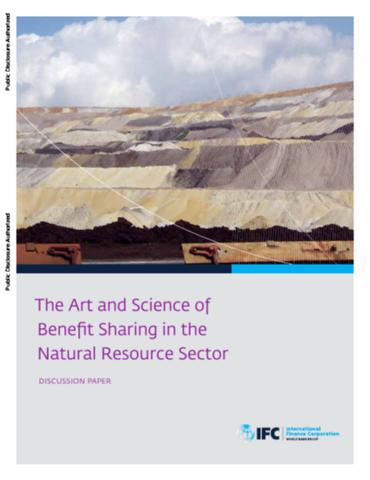Resource information
The purpose of this paper is to contribute to theunderstanding and discussion of how the costs andbenefits of natural resource development are sharedacross society. This paper presents how IFC, as both aninvestor and a development organization, determineswhether benefits and costs are shared reasonably, and how this assessment influences IFC’s decision to invest ina particular natural resource project. the goal of the paper is to promotea broad, constructive dialogue across stakeholders—governments, investors, civil society, and others—around benefit sharing. The paper draws on IFC’s experience and presents anoverarching framework for multi-stakeholder benefitsharing, providing analysis and guidance for a range ofcomplex topics. The paper is intended to provide entrypoints for stakeholders of varying levels of familiarity with the issues to benefit-sharing assessment. The paper is not a definitive manual for all the issues coveredfor which more detailed, high-quality and excellentreferences and literature exists. This paper is organized along these broad areas of impact that IFC considers in the benefit sharing assessment:fiscal, economic, environmental, and social. The approaches IFC uses to evaluate benefit sharing arepresented in each area, along with some lessons learned. This is complemented by a discussion of key issues thatare topical in the field. Each chapter opens with a list of questions that can be used as a guide to assess the potential benefits and costs of an investment. As a result, there is a spectrum of what can be considered reasonable overall. However, there may be particular features of a benefit-sharing arrangement that stand out and can signal a risk to its legitimacy. Our aspiration is that this paper will complement as well as stimulate work by others that can enhance the collective knowledge and encourage dialogue.


